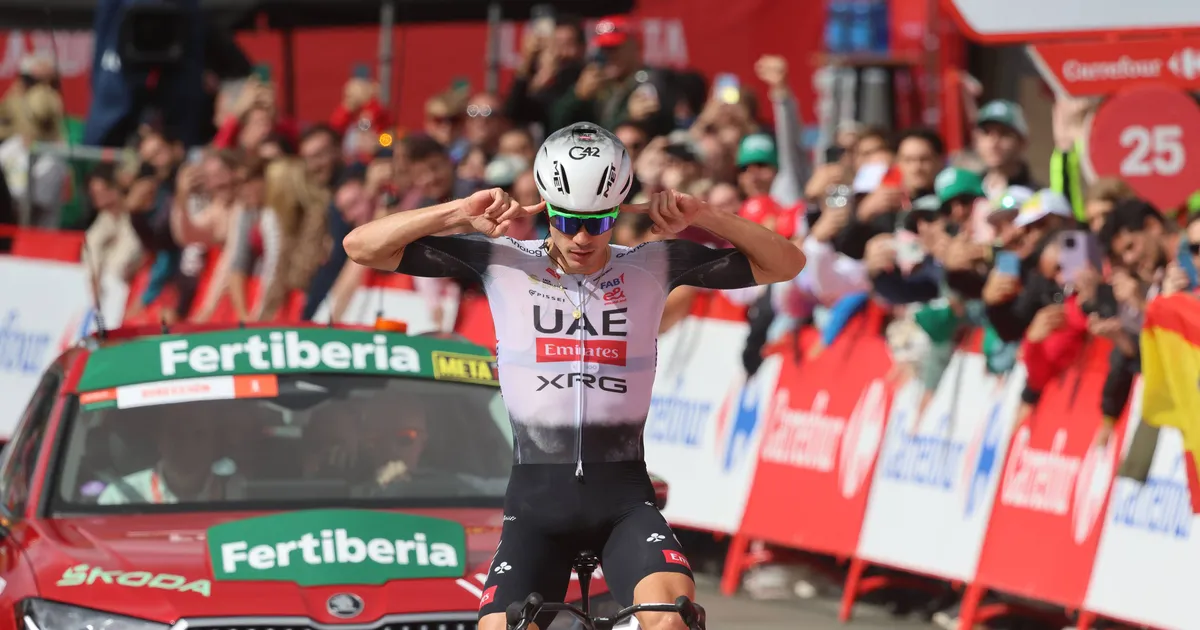Friction inside UAE
The dynamic, he argues, was unsustainable within a squad built around established leaders. “In a team like UAE you have roles and responsibilities that must be respected, because you’re alongside team-mates of huge stature. Sometimes you can’t simply do as you please – you have to follow rules, you have to respect hierarchies. I think Ayuso clashed both with his own youthful exuberance and with the needs of some of the team’s big riders.”
Saronni points out that Ayuso was not without opportunity at UAE. On the contrary, he believes the 23-year-old held a privileged role but let it slip through his fingers. “In my opinion he had enough space, because it seemed to me he had an important role,” Saronni said. “But he wasted it somewhat, squandering some of the trust placed in him.”
The public manner of Ayuso’s transfer announcement added another layer of controversy. Revealed mid-Vuelta, it provoked a visibly frosty response from the rider, who aired his frustrations through the media and on social channels. Saronni, however, views the timing less as sabotage than as an act of mutual relief.
“It was a release for everyone, which is why the news came earlier than expected,” he explained. “When cohabitation is no longer possible, it’s the right solution for all concerned. UAE have so many riders, and of course Pogacar to lead, that Ayuso was an extra value – but only if things worked. I think it will do him good to change environment and find new space.”
Reputation and the road ahead
Yet questions remain over whether the Spaniard’s reputation for being difficult to integrate will follow him into his new chapter. Lidl-Trek leader Mattias Skjelmose was quick to air doubts over Ayuso’s ability to collaborate in a Grand Tour context. Saronni suspects that within the peloton, such concerns are well understood.
“Inside the bunch, riders see and know things – they observe behaviour, character, and many details that outsiders don’t fully catch. They know about this temperament. That raises questions. The peloton has probably seen that this lad sometimes insists too much on doing his own thing. But no one doubts his talent. When you’re young, you need to understand, evaluate, improve and grow – and I believe he will.”
For Saronni, the affair also highlights the modern cycling marketplace, where contracts can be signed and announced months before the season ends. “Sometimes the UCI brings out rules that are quite questionable. I’m a bit old-school – I believe a rider should only switch teams at the end of the year. Personally, I preferred the old rule where you changed team at the end of the season. It was much simpler and clearer.”
Ayuso, then, leaves UAE as a rider whose talent is unquestioned but whose integration proved impossible. Lidl-Trek are buying into that ability – but also into a project of maturity and adaptation that Saronni suggests may prove decisive in whether he fulfils the expectations long placed upon him.

